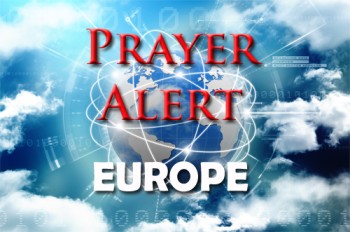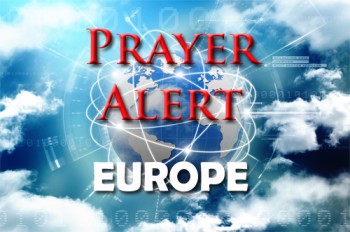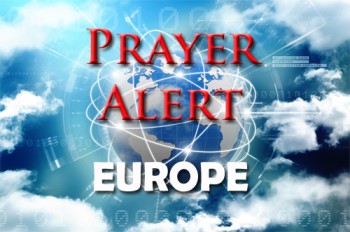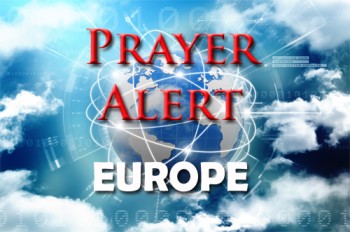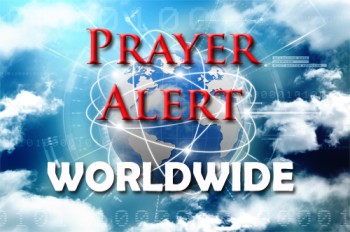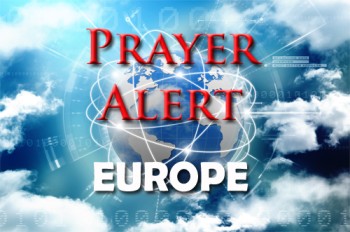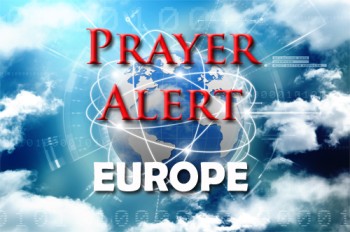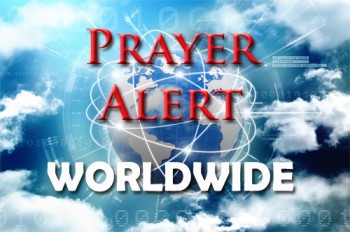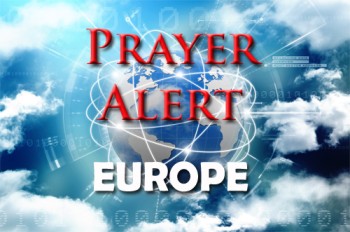Displaying items by tag: Russia
Moldova: president warns of Russian interference as elections near
Days before crucial parliamentary elections, Moldova’s president Maia Sandu has warned that Russian-backed plots are threatening her nation’s independence and European aspirations. Police have arrested 74 people accused of planning violent unrest, seizing weapons and explosives allegedly supplied through Russian training in Serbia. Sandu accused the Kremlin of pouring hundreds of millions of euros into Moldova to spread disinformation, buy votes, and intimidate pro-EU supporters, echoing past meddling during the 2022 EU-accession referendum which was narrowly approved by just 50.4%. Pro-Russian parties deny wrongdoing and claim Sandu is stifling opposition, while Moscow’s SVR intelligence agency countered with disinformation alleging European plans to falsify the vote and occupy Moldova. Sandu’s Party of Action and Solidarity faces stiff competition, especially in Russian-speaking regions like Gagauzia where many favour closer ties to Moscow. She is calling for high voter turnout, particularly from the diaspora, to safeguard the country’s sovereignty and keep its path toward EU membership.
Russia and Belarus conduct military exercises as NATO feels the heat
Watched by US military officers and delegates from Turkey and Hungary, Russia and Belarus have launched large-scale military exercises across their territories and nearby seas, showcasing advanced weaponry and tactical nuclear capabilities near NATO’s eastern flank. The drills, involving roughly 6,800 troops as well as fighter jets and missiles, practised modern combat tactics like drone-assisted infantry assaults. Relations between Washington and Minsk seem to be improving; Belarus has recently released 52 political prisoners, prompting the Trump administration to ease some sanctions. Meanwhile, NATO allies remain uneasy after Russian drones repeatedly violated Polish and Romanian airspace. European leaders worry the exercises highlight Russia’s growing nuclear reach and evolving battlefield strategies, while Moscow insists it is open to dialogue but blames Western nations for obstructing progress toward resolving regional tensions.
Poland: reactions to Russia’s drone attacks
Russia’s unprecedented drone strikes on Poland on 9 September are framed as both a test and a warning to Europe and NATO. Moscow, adept at ‘salami-slicing’ escalation, is probing allied resolve with incremental provocations - from bombings in Kyiv to GPS jamming: each crossing a new line while eliciting mostly rhetoric. Similar tactics enabled the 2014 seizure of Crimea, and hitting Polish territory is a larger slice meant to measure the alliance’s willingness to honour Article 5. A direct military response is deemed unlikely, yet inaction risks projecting weakness and inviting the next escalation. Sanctions talk will grow, but prior rounds neither deterred invasion nor reversed it; energy sanctions that might bite remain politically constrained. The strikes also serve as a warning against deeper Western involvement in Ukraine: Russia’s deniable, ambiguous tactics could complicate any future allied deployment after a ceasefire. The core question: can NATO deter without stumbling into a wider war?
Bulgaria: von der Leyen’s plane subjected to electronic jamming
On 1 September, In what authorities suspect was Russian interference, Ursula von der Leyen’s plane was subjected to GPS jamming while landing in Bulgaria,. The flight, which landed safely using paper maps, highlighted the persistent threat of disrupting aviation traffic electronically. Russia has long been accused of such tactics, particularly in the Baltic and Scandinavian regions, though the Kremlin has denied involvement. The incident occurred during von der Leyen’s tour of eastern EU states, aimed at reinforcing solidarity with Ukraine amid ongoing Russian aggression. She said that the EU must keep up their sense of urgency, adding: ‘Putin has not changed, and he will not change. He can only be kept in check through strong deterrence.’ The event also served as a reminder of the risks faced by European leaders when showing visible support for Ukraine’s sovereignty and freedom.
China: huge military parade watched by Putin, Kim, and other leaders
Beijing has hosted a grand military parade marking eighty years since the end of WW2, with Xi Jinping standing alongside Vladimir Putin and Kim Jong Un in a rare joint appearance. Xi framed the event as a moment for nations to choose between ‘peace and war’, as China unveiled an extensive array of modern weaponry, including huge nuclear-capable underwater drones, and futuristic defence systems. With more than 50,000 chosen spectators present, the spectacle highlighted China’s military ambitions and global positioning. The gathering drew leaders from Iran, Pakistan, Vietnam, Zimbabwe, and others, though most Western leaders declined invitations. Xi emphasized unity and prosperity in his toast, urging nations to reject ‘the law of the jungle’. After the parade, at bilateral talks, Putin praised Pyongyang for contributing troops to fight in Ukraine; it is estimated that there are now 15,000 North Korean troops there.
Ukraine: Trump stirs more controversy, hopes for trilateral meeting
Donald Trump has stirred controversy by suggesting Ukraine is to blame for confronting a nation ‘ten times’ its size, despite Russia being the aggressor in the ongoing war. He downplayed Russia’s responsibility for the invasion, instead criticising former presidents Joe Biden and Barack Obama for their handling of the conflict. He argued that Biden ‘started’ the war and accused Obama of ‘giving away’ Crimea in 2014. He also asserted that Ukraine had only been able to resist due to American weapons and aid. His comments followed the White House meeting on 18 August with Volodymyr Zelensky, European leaders, and NATO officials, at which he pledged US support for Ukraine’s future security. Trump also touted his ‘good relationship’ with Vladimir Putin, saying that he had spoken to him about arranging a trilateral meeting with Zelensky. While he presented this as an early step toward peace, the question now is how Putin will respond.
Trump warns of ‘severe consequences’ if Putin refuses to agree to a ceasefire
Donald Trump has warned of ‘very severe consequences’ if Vladimir Putin refuses to agree to a ceasefire in Ukraine during their meeting in Alaska on 15 August. While not detailing the measures, Trump has previously suggested economic sanctions and hinted at a follow-up meeting that could include Volodymyr Zelensky. Concerns persist among European leaders and Kyiv that any peace proposal might involve Ukraine surrendering territory - particularly the Donbas region - in exchange for halting further Russian advances. In a high-level virtual call hosted by Germany, Zelensky, Trump, and key European leaders reaffirmed their commitment to Ukrainian sovereignty and continued pressure on Moscow. Zelensky dismissed Putin’s threats as bluffs, insisting that sanctions and united international resolve remain crucial. The Alaska summit is seen as both a diplomatic opportunity and a high-stakes gamble, with Ukraine’s territorial integrity and the broader stability of Europe hanging in the balance. Meanwhile, on 12 August Russian troops tried to make a big advance, possibly to put extra pressure on Kyiv to cede territory: see
Ukraine: Trump claims ‘great progress’ in talks with Putin
Donald Trump has described talks on 6 August between his envoy Steve Witkoff and Vladimir Putin as ‘highly productive’, claiming that ‘great progress’ has been made toward ending the Ukraine war. The Kremlin issued a vague statement confirming the exchange of ‘signals’ but did not give further details. The meeting occurred days ahead of Trump’s ceasefire deadline, amid mounting frustration over stalled peace efforts. Volodymyr Zelensky and European leaders were briefed on the talks and reiterated the need to end the war. Despite Trump’s threats of increased sanctions, including raising the tariff on India to 50% for buying Russian oil, Russia has continued its attacks on Ukrainian cities. Three years into the invasion, peace talks have repeatedly failed, and Russia’s preconditions remain unacceptable to Kyiv. Meanwhile, the USA has approved $200 million in military support to Ukraine, with Trump still open to meetings with both Putin and Zelensky. The humanitarian toll of Russian strikes remains devastating and ongoing.
India: relationships with the USA take a downward turn
US-India relations entered a turbulent phase when Donald Trump tore into India for its continued oil imports from Russia and slow progress on trade negotiations. Formerly close to Prime Minister Narendra Modi, Trump, accusing India of funding Russia’s war in Ukraine, has vowed to raise tariffs on Indian exports to 50%. India regards its Russian energy imports as economically necessary; it has a longstanding relationship with Russia and is among the largest importers of Russian oil. Modi’s government has so far resisted Trump’s pressure, particularly over opening up US access to the heavily protected agriculture and dairy sectors. In response to Trump’s belligerent language, Modi has called on citizens to buy only Indian-made goods, leading to greater economic self-reliance. Political commentators note that it will be very difficult for Modi to give any large concessions in a trade deal, given the growing anger within India towards Trump.
Ukraine: new peace talks, says Zelensky
Volodymyr Zelensky has announced that Ukraine and Russia will engage in another round of talks on 23 July in Turkey. This comes at a time of intensified Russian drone attacks and continued escalation in the long-running conflict, now in its fourth year. While earlier talks have led to prisoner exchanges, little progress has been made toward achieving a lasting peace. Russia’s conditions for ending the war include Ukraine’s full withdrawal from the regions of the country now occupied by Russia, and international recognition of territories it has claimed since 2014, including Crimea. Ukraine, on the other hand, seeks a ceasefire, restoration of its borders (to 2013), return of all abducted children, release of civilians, and the exchange of prisoners of war. Donald Trump has voiced support for increased sanctions on Russia to pressure a resolution, urging both sides to reach an agreement swiftly. The world watches closely as diplomatic efforts resume amid deep divisions and ongoing violence.
